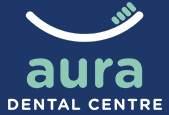Root Canal Therapy
Often times, individuals may experience severe pain deep within the roots of their teeth. This can happen when the dental pulp—the inner part of your teeth that contains blood vessels and nerves—becomes infected or inflamed. Other times, a patient may experience significant damage to one or several teeth and seek to have them replaced.
In these severe circumstances, a root canal therapy may be your best option to prevent your affected tooth or teeth from experiencing severe decay and no longer becoming viable.
Otherwise known as endodontic therapy, root canal therapy is routinely performed by our dental professionals to restore the comfortability and function of natural teeth. Root canal therapy is often thought to be a painful procedure when in fact, many patients report that the process is not as painful as they thought.
What is a root canal?
Your teeth are divided into two main segments: the crown and the root. The crown consists of the portion that you typically see when you smile—the enamel and cuspids (i.e., sides or raised parts of your teeth). Whereas the root consists of the integral parts of your teeth that are involved in temperature sensitivity and the delivery of nutrients—your nerves and blood vessels, respectively.
Within the root, the root canal is what contains dental pulp tissue, nerves, and the network of blood vessels. The root canal specifically extends from the transition zone between the crown and the root, to the apex, or tip, of your tooth root that is located below the gumline.
Below your gumline, your root canal exits the tip of your tooth root through a “root-end opening”. This is where the blood vessels and nerves enter and exit the tooth and join the network of nerves and vessels that run along your jawbone.
With this anatomy in mind, infection of the dental pulp can result in inflamed nerves and blood vessels deep within the tooth. This is what may necessitate having a root canal therapy performed. If this is left untreated, you may experience significant tooth decay and require a restorative procedure to replace your tooth.
What does a root canal treatment look like?
Generally, you will require one to three visits to our dental office when having root canal therapy performed by our dentists.
On the first visit, one of our dentists will drill a small hole through the top of the tooth and deep into the dental pulp. Tissue that appears diseased or inflamed is removed from the inner portion of your tooth, which is then cleansed and disinfected. The minute canals within your tooth will then be reshaped and filled with an elastic material and medication that are designed to prevent further infection. Our dentists will decide whether the drilled hole should be filled temporarily until a crown can be applied, or whether the hole will be permanently filled on the first appointment. This is dependent on the extent of the tooth’s structural integrity after having the root canal disinfected and the pulp tissue removed.
Will it hurt to have root canal therapy?
Many of our patients who have had root canal therapy experience little to no discomfort or pain. Moreover, the outcome of a restored, painless, and naturally functioning tooth can outweigh any discomfort experienced during the actual procedure.
Because the nerves of your teeth primarily serve to sense hot and cold temperatures and are not essential to its usual function (i.e., to breakdown food), your affected tooth will be restored to its natural function and can last almost as long as its healthy original had it not been infected.
Caring for my disinfected root canal
Astoundingly, a large-scale study found that included over 1.6 million patients of root canal therapy found that 97% retained their teeth up to 8 years following their procedure. This significantly outweighs the cost of dealing with an untreated, inflamed root canal that can result in permanent loss of your tooth at an accelerated pace.
Following a root canal treatment, it will take some time to fully restore the structural integrity of your tooth. In the meantime, we recommend avoiding hard candies and chewy foods as this may disrupt the natural healing process and delay recovery or cause other structural problems.
It is common to experience mild pain within a few days of your procedure, but this is temporary and should dissipate over time and with proper dental hygiene (brushing twice daily, frequent flossing, and biannual dental cleanings).
If you would like to consult our dentists about complications you may be experiencing with you teeth, call us today at (204) 560-4500 to book an appointment.

